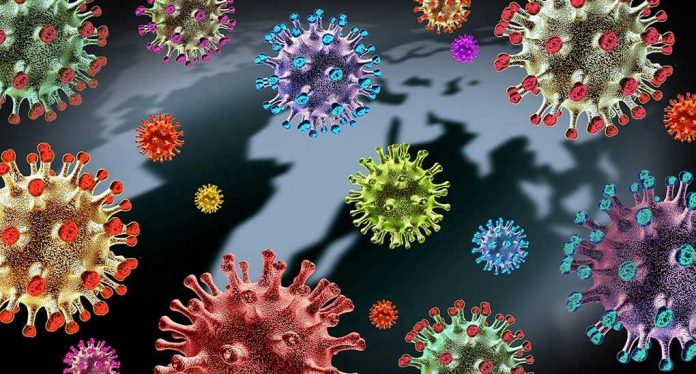
What if you could train your own immune cells to hunt down cancer with the precision of a bloodhound—customized for your body—in the time it takes to get a passport photo?
At a Glance
- Artificial intelligence now designs custom immune proteins that turn T cells into cancer assassins in just weeks.
- This breakthrough slashes development time from years to mere weeks, offering a leap in personalized cancer therapy.
- AI-driven safety checks promise fewer side effects, targeting only the bad guys and leaving healthy cells unscathed.
- The technology, still in early testing, could upend how we treat not just cancer but a host of other stubborn diseases.
The Lightning-Fast Evolution of Cancer Immunotherapy
For decades, scientists have dreamed of training the body’s own immune army to outsmart cancer. Early efforts involved crude drugs that gave the immune system a pep talk—think of it as motivational posters for T cells. Then came the genetic wizardry of CAR T-cell and TCR therapies, which custom-tailored immune cells to recognize cancer’s disguises. But here’s the rub: Finding the right immune “key” for each patient was like searching for a snowflake in a blizzard—slow, laborious, and sometimes impossible. Enter artificial intelligence, strutting onto the scene with the swagger of a game show host and the memory of a supercomputer, ready to rewrite the rulebook.
The real twist? Teams at the Technical University of Denmark (DTU) and Scripps Research Institute have built a system that designs protein “keys” for immune cells entirely on a computer. These custom proteins teach T cells to recognize and destroy cancer cells with the accuracy of a laser pointer. What used to take years—trawling through endless immune cell libraries—now takes just a few weeks. This isn’t science fiction; it’s the future, and it’s here, lab-tested, and published in Science for the world to gawk at.
How AI Trains Immune Cells to Be Sharpshooters
So, what exactly does this miracle machine do? Imagine giving your immune cells a personalized Google Maps: “turn left at the mutated protein, avoid healthy tissue, and vaporize anything suspicious.” The AI platform, developed by world-class researchers (with Associate Professor Timothy Jenkins leading the charge), uses not one, not two, but three machine learning models in tandem. The first proposes new protein structures, the second predicts the amino acid sequences needed to build them, and the third acts as a virtual bodyguard, checking for potential side effects before anything ever touches a test tube.
In early lab results, human immune cells armed with these AI-designed proteins swarmed and destroyed melanoma cells, stopping tumors before they had a chance to spread. The key innovation: these proteins are custom-built to match the unique “fingerprints” of a patient’s cancer, enabling a level of personalization that’s unprecedented. And because AI runs the show, this whole process can be repeated and customized for any patient, any time, with a turnaround that would make Amazon Prime blush.
Why This Changes Everything for Cancer Patients
Traditional cancer immunotherapies are like sending generic soldiers into battle with vague instructions. Sometimes they hit the target; sometimes, they get distracted. With this new AI-driven approach, the immune system gets a bespoke playbook tailored to every skirmish. For patients—especially those with rare or tough-to-treat cancers—this means speedier, safer, and more effective treatments. The days of relying on donor immune cells (with all their logistical headaches and risks) may soon be history, replaced by rapid, in silico protein design that keeps up with even the fastest-mutating tumors.
What’s more, the tech doesn’t stop at cancer. The same AI engine could be pointed at autoimmune diseases, viral infections, or anything else where immune targeting matters. Biotech startups are already circling, eager to commercialize and expand the reach of this technology. It’s not just a win for patients; it’s a paradigm shift for the entire pharmaceutical industry. Drug development timelines could shrink from years to weeks, and the domino effect on costs, innovation, and global health could be enormous.
The Road Ahead: Hype, Hope, and Hard Realities
Let’s not pop the champagne just yet. The technology, though dazzling, is still in the early stages. Lab tests are promising, but clinical trials and regulatory hurdles await. Will these designer immune cells behave as impeccably in real patients as they do in the petri dish? Will AI’s virtual safety checks catch every possible risk? The answers lie ahead, but the groundwork has been laid: robust peer-reviewed research, cross-validation across multiple labs, and enthusiastic endorsements from scientific heavyweights.
Still, the disruption is underway. As AI-driven protein design matures, expect fierce debates over data privacy, regulatory standards, and who gets first dibs on this new era of personalized medicine. One thing is certain: the days of one-size-fits-all cancer drugs are numbered. The future belongs to custom-tailored cures, delivered at machine speed, with a little help from algorithms that never sleep or get bored.
Sources:
ScienceDaily: AI turns immune cells into precision cancer killers—in just weeks
Science News: Generative AI designs proteins to turn immune cells into cancer killers



